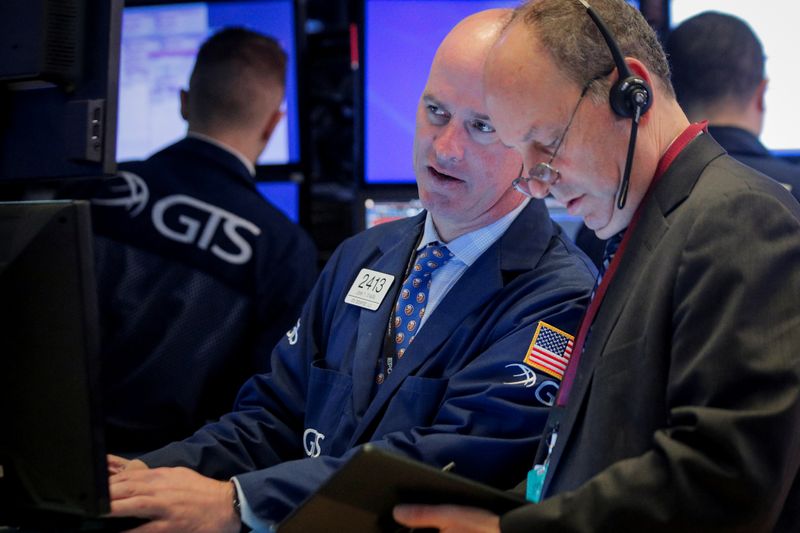This post was originally published on this site
https://i-invdn-com.akamaized.net/trkd-images/LYNXMPEG1J16F_L.jpg
By Medha Singh
(Reuters) – U.S. stock indexes fell on Thursday, dragged down by technology heavyweights, as investors fretted over the rising number of coronavirus cases in China and other countries as well as the potential economic damage from the epidemic.
Indexes dropped sharply in late morning trade, with some traders attributing the move to a Global Times report that a central Beijing hospital had reported 36 new cases, leading many to fear a potential explosion of infections in the capital.
“The story suggests that the virus has spread to medical workers and people who help clean hospitals, so the markets are shook up by that,” said Keith Bliss, senior vice-president at Cuttone & Co in New York.
Sentiment was already weak after Japan reported two new deaths and South Korea reported a rise in new infections. Research also suggested that the virus was spreading faster than previously thought.
“The market got well ahead of itself. The coronavirus thing is not over by any stretch,” said Ken Polcari, senior market strategist at SlateStone Wealth LLC in Jupiter, Florida.
Recent policy easing by China, a largely better-than-expected fourth-quarter earnings season and hopes that the economic jolt from the coronavirus will be short-lived have pushed Wall Street’s main indexes to new highs in recent weeks.
At 1:13 p.m. ET, the was down 165.96 points, or 0.57%, at 29,182.07, the S&P 500 was down 19.41 points, or 0.57%, at 3,366.74. The was down 95.16 points, or 0.97%, at 9,722.02.
Technology stocks declined 1.2%, the most among seven of the 11 major S&P sectors trading lower.
Microsoft Corp (NASDAQ:), Apple Inc (NASDAQ:) and Amazon.com Inc (NASDAQ:) dropped about 1% each and weighed the most on the benchmark index.
In corporate news, ViacomCBS Inc slumped 17.1% as its earnings fell short of revenue and profit expectations in its first quarterly earnings results since closing its merger.
E*Trade jumped 24.1% after Morgan Stanley (NYSE:) offered to buy it in a $13 billion stock deal, the biggest acquisition by a Wall Street bank since the financial crisis.
Advancing issues outnumbered decliners by a 1.12-to-1 ratio on the NYSE. Declining issues outnumbered advancers for a 1.17-to-1 ratio on the Nasdaq.
The S&P index recorded 35 new 52-week highs and four new lows, while the Nasdaq recorded 121 new highs and 50 new lows.
Fusion Media or anyone involved with Fusion Media will not accept any liability for loss or damage as a result of reliance on the information including data, quotes, charts and buy/sell signals contained within this website. Please be fully informed regarding the risks and costs associated with trading the financial markets, it is one of the riskiest investment forms possible.

